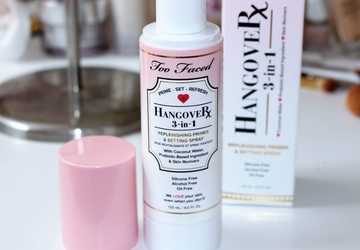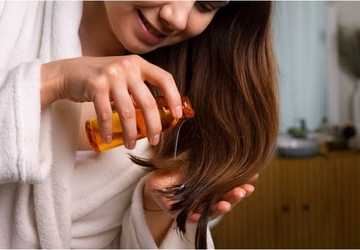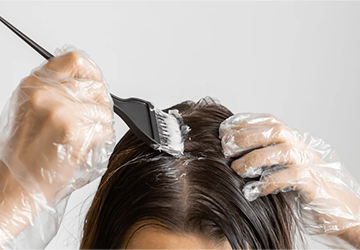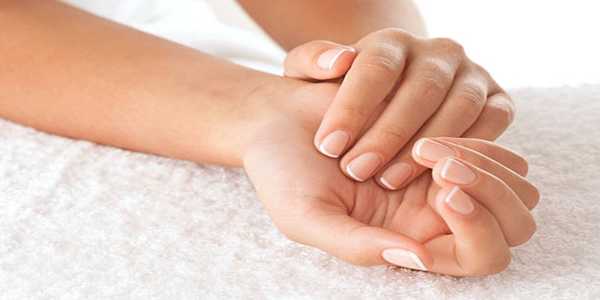Effective Ways to Treat Acne at Home
Acne is one of the most common skin issues. It can be frustrating and often affects self-esteem. While numerous over-the-counter and prescription treatments are available, many people seek to treat acne at home using natural and accessible methods. Let’s explore how to treat acne scars and acne overnight and provide tips for an effective acne spot treatment.
Understanding Acne and Its Causes
Knowing what causes acne is crucial before attempting any therapies. When oil and dead skin cells clog hair follicles, acne results. This can lead to blackheads, whiteheads, pimples, and, in severe cases, cystic acne. Hormonal changes, diet, stress, and genetics can all play a role in acne development.
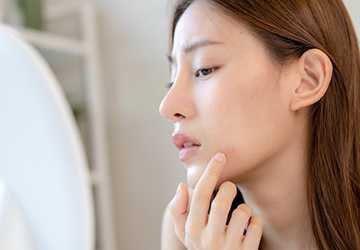
Natural Remedies to Treat Acne at Home
1. Tea Tree Oil
Studies have shown that Tea Tree Oil's anti-inflammatory and antimicrobial properties can reduce the number of inflamed and non-inflamed lesions in acne patients. Applying tea tree oil directly to the afflicted area with a cotton swab after diluting it with a carrier oil (such as coconut oil) will help it work as an effective acne spot treatment.
2. Aloe Vera
It is common knowledge that aloe vera is one of the most powerful natural moisturizers with anti-inflammatory properties that can soothe the skin. If you want to heal and reduce acne, you should apply aloe vera gel directly from the plant to acne-prone areas. Due to its amazing healing properties, aloe vera (fresh or good-quality store-bought) is proven to be highly effective for stubborn acne scar treatment.
3. Honey and Cinnamon Mask
Honey has antibacterial properties, while cinnamon is known for its anti-inflammatory effects. A combination of these two can create a powerful mask. Make a paste with two tablespoons honey and one teaspoon cinnamon, apply it to your face, and let it sit for ten to fifteen minutes. Rinse off with warm water for clearer skin.
4. Green Tea
Green tea's antioxidants can help the skin by lowering inflammation and combating germs. To use, steep 3–4 minutes of green tea in boiling water, allow it to cool, and then apply it to your skin with a cotton ball or spray bottle. It can also be consumed as a beverage to help treat acne internally.
Effective Acne Spot Treatment Techniques
1. Salicylic Acid
Salicylic acid helps unclog pores and reduce swelling and redness. It is an ingredient commonly found in many over-the-counter acne treatments. Applying a small amount to a pimple can help reduce its size and prevent future breakouts.
2. Benzoyl Peroxide
Another effective acne spot therapy is benzoyl peroxide. It helps pores release extra sebum and dead skin cells by eliminating microorganisms beneath the skin. For best results, use a product with a 2.5% concentration to minimize irritation.
3. Ice
Applying ice to a pimple can reduce redness, swelling, and pain. Wrap an ice cube in a clean, germ-free cloth and hold it on the affected area for a few minutes. This method can be used several times a day for quick relief.
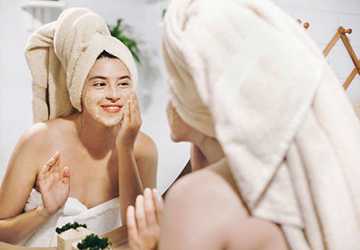
How to Treat Acne Overnight
While it's challenging to spot acne overnight, some methods can significantly reduce the appearance of pimples by morning.
1. Overnight Treatments
● Toothpaste: Applying a small amount of white toothpaste to a pimple can help dry it overnight.
● Aspirin Paste: The correct way to use aspirin for acne is to crush a pill and combine it with water to make a paste. Apply the paste and let the pimple sit for the entire night. Salicylic acid, an ingredient in aspirin, can lessen redness and inflammation.
2. Hydrocolloid Patches
These patches are designed to absorb excess fluid and can significantly reduce the size of pimples overnight. They also prevent picking, which can exacerbate acne and lead to scars.
How to Treat Acne Scars
Acne scars can be more challenging to treat than acne itself. However, several home remedies and treatments can help reduce their appearance.
1. Lemon Juice
When it comes to home remedies, lemon takes center stage—whether it's for cleaning household or kitchen items or even your skin! Since lemon juice is a natural bleach, it can help lighten acne scars. Before rinsing, apply fresh lemon juice to the scars and let it sit for ten to fifteen minutes. When using this procedure, use caution because lemon juice can cause skin sensitivity to sunlight.
2. Baking Soda
Are you tired of those prominent acne scars? Scars can seem less noticeable if you use baking soda as an exfoliation. Apply a paste from a few teaspoons of baking soda and water to the wounds, let it sit for a few minutes, and then rinse it off.
3. Vitamin E
It is well known that vitamin E can cure skin. For optimum effects, apply vitamin E oil directly to the scars and let them sit overnight. Frequent use helps lessen the visibility of scars and enhance skin texture.
Interesting Facts and Statistics
- Prevalence of Acne: Acne affects approximately 85% of people aged 12-24 at some point.
- Cost of Treatment: Americans spend over $1.2 billion annually on over-the-counter acne treatments.
- Diet and Acne: Studies suggest a low glycemic index diet can reduce acne severity.
Conclusion
Acne is a common but manageable condition. With the right approach, it’s possible to treat acne effectively at home. Nature plays a significant role here, providing us with treasures like honey, lemon, aloe vera, tea tree oil, and much more to use alongside over-the-counter treatments like salicylic acid and benzoyl peroxide for an effective acne spot treatment. Also, hydrocolloid patches and aspirin paste can help treat acne overnight.
For those with lingering scars, lemon juice, baking soda, and vitamin E offer promising results. Consistency is essential, and combining these treatments can yield the best results. Always consult with a dermatologist for persistent or severe acne. By adding these techniques to your skincare regimen, you are sure to make major progress towards healthier, clearer skin.

